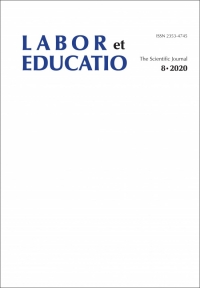Self-efficacy as a predictor of social workers’ perceived workload
Self-efficacy as a predictor of social workers’ perceived workload
Author(s): Katarzyna NowosadSubject(s): Applied Sociology, Social development, Welfare services, Human Resources in Economy
Published by: Wydawnictwo Uniwersytetu Jagiellońskiego
Keywords: Social worker; workload; self-efficacy;
Summary/Abstract: Working in the support professions is associated with a heavy mental and emotional burden. Social workers face human tragedy, difficult situations, a shortage of resources, and the need to make extremely responsible decisions regarding people’s fate, and they may even be exposed to aggression from demanding clients. These fac- tors may cause unpleasant experiences and emotional tensions among social workers, disrupting the course and structure of professional activities. Self-efficacy may help in coping with this burden. It constitutes the belief that one has the skills allowing them to cope better with problems (cf. Zientek, 2006; Bandura, 2007; Wierzejska, 2018). The article aims, therefore, to determine the role of self-efficacy in explaining the perceived workload of social workers. The obtained research results indicate that social workers’ self-efficacy is a significant predictor of their sense of workload.
Journal: Labor et Educatio
- Issue Year: 2023
- Issue No: 11
- Page Range: 141-155
- Page Count: 15
- Language: English

